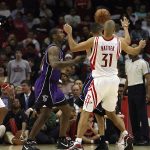By Donna S. Allman
Definitions of a team
The Collins English Dictionary defines a team as a group of people who play a particular sport or game together against other similar groups of people.
You can refer to any group of people who work together as a team.
I gave my class the assignment “A champion team beats a team of champions” Agree, Disagree. It’s not a new question by any stretch of the imagination. I divided them into 2 teams and let them have at it.
The Agree Group had an easy task – the module I was teaching at the time, teamwork, had all the forming, storming, norming, performing concepts that you could think of. Yes, the A-Group had it easy. The Disagree Group had to be creative. While the D-Group was brainstorming what to do and looking at sports champions, a well-meaning eavesdropper told them the topic had nothing to do with sport but all to do with management. This is incorrect.
Don’t fall into the trap that topics of study separate little oil droplets in the water of knowledge. I say no. Everything is related and has an effect on each other.
 What better way to define a team than to look at sports? Sports franchises are huge corporations making millions. What better example to use than a huge money-making monolith? Because if they were doing it wrong the ultimate leader, their manager, their coach, the water-carrier and the fly on the wall gets fired.
What better way to define a team than to look at sports? Sports franchises are huge corporations making millions. What better example to use than a huge money-making monolith? Because if they were doing it wrong the ultimate leader, their manager, their coach, the water-carrier and the fly on the wall gets fired.
Consider this:
A TEAM…
Generates performance GREATER than the sum of its individual members.
What makes an effective team?
They share a common vision, mission and goals.
Mission? What mission? you say. Some team members are not even aware of their organizations’ mission or vision or goal. Or the mission is just a hodgepodge collection of impressive sounding buzzwords that means absolutely nothing.
Here are some more team characteristics:
- Collaborative skills, not silos. I find this concept easy to remember and understand. Just think of those corn towers standing together. Nothing gets in and nothing gets out. Can’t have your corn mixing with mine. No way.
- Effective conflict resolution. This is the #1 issue that individuals and teams figure that if you ignore it long enough it will go away on its own, but it can and will be like a festering wound that will ultimately result in amputation!
- Encourages support for team members.
- Co-operative attitude. This differs from collaboration although the tendency is to use it interchangeably with cooperation. Cooperative suggests that each person must be accountable for whatever role they are doing because without them the task will fail.
- Excellent communication and active listening skills. We are so deficient in organizations on this particularly when it comes to active listening.
- Social empathy – an awareness and concern for others. An effective team has members that are willing to assist.
- Selflessness.
- Utilization of different skills. This is a huge deal when it comes to teamwork. Think of a jigsaw puzzle. Every piece is different and needs to go in there to complete the picture.
- Leadership. This is where someone displays certain qualities that their peers recognize as someone to follow.
 Social connection – the skill of meaningfully relating to others. The long and short was that the team that had to agree had an easy time of it but my D-Group came up with an interesting argument about Usain Bolt being a star and how his gold medal haul made the whole team look and feel good. It’s a conclusion I hadn’t thought of, but who says the teacher can’t learn from the student? I gave them kudos for making a valiant attempt to argue from the losing end.
Social connection – the skill of meaningfully relating to others. The long and short was that the team that had to agree had an easy time of it but my D-Group came up with an interesting argument about Usain Bolt being a star and how his gold medal haul made the whole team look and feel good. It’s a conclusion I hadn’t thought of, but who says the teacher can’t learn from the student? I gave them kudos for making a valiant attempt to argue from the losing end.
Apollo Syndrome
This is not a new class question. What pops to mind is the Apollo Syndrome postulated by Dr. Meredith Belbin, where teams of highly capable individuals can, collectively, perform badly.
He noted that in teams made up of highly analytical minds” our “team of champions”, the team would perform badly. He reported some unexpectedly poor results with teams formed of brilliant minds. The members spent an excessive amount of time trying to argue others into seeing things their way and not backing down. They were able to see all the flaws in others’ arguments but suffered immensely from the discussion-equivalent of the Deadly Embrace. There was little understanding how to prioritize, no coherence in their decision making and no-one willing to compromise.
They are so busy being brilliant that they forgot that the overall goal is action and spend most of the time trying to show everybody else how much smarter/faster/better they are than the next person and chose to avoid confrontation, ending up in a state of inaction, or what can be called Implementation Deficit Disorder.
What they fail to understand is that a team is the sum of many parts.
The Answer
The argument leans more to the side of affirming that a champion team would beat a team of champions. What the debate does, however, is to teach us as management practitioners to be more analytical. Look at the real evidence out there on teamwork and teambuilding in order to make a sound conclusion.
I’d love to hear your thoughts.